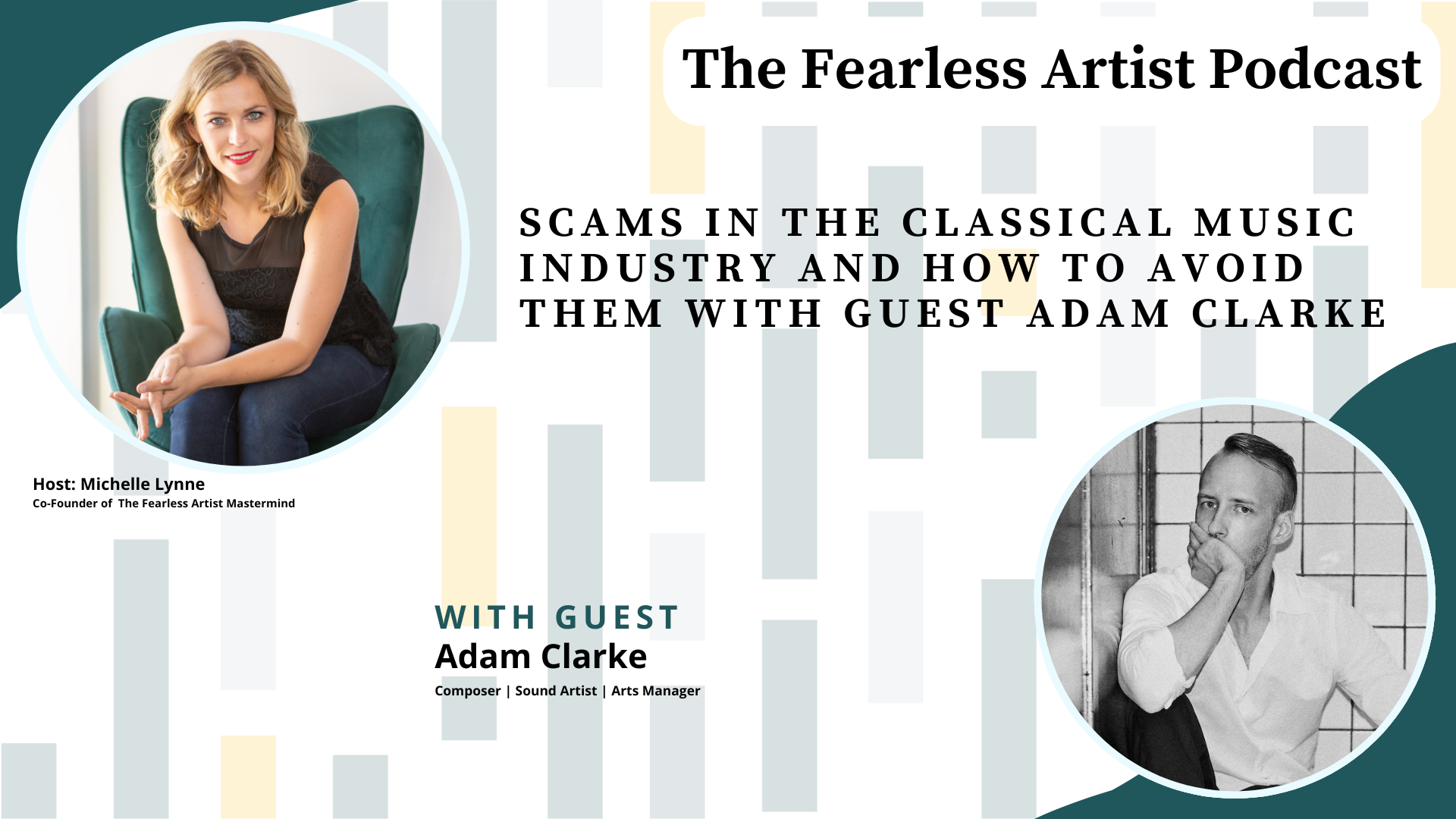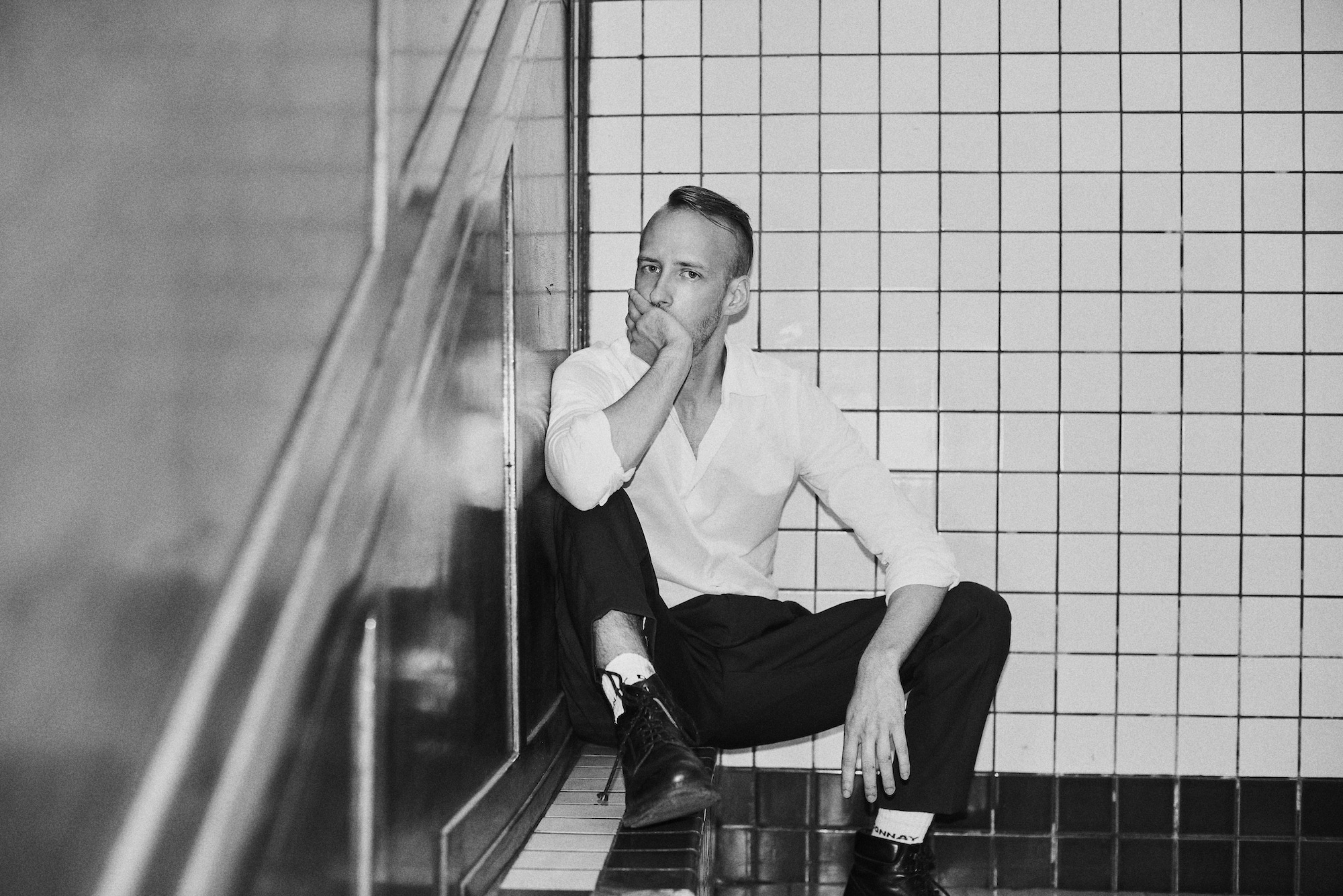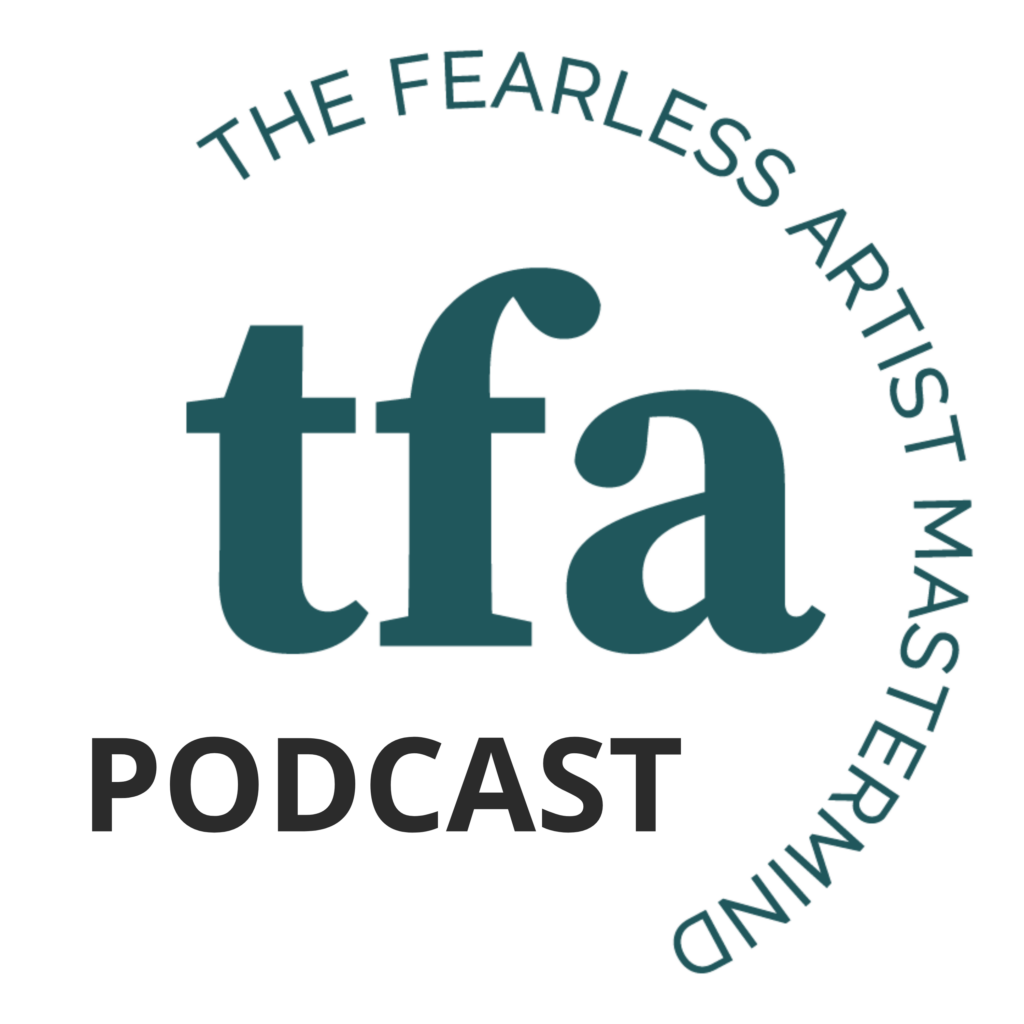Scams in the classical music industry and how to avoid them with guest Adam Clarke

Guest:
Adam Clarke
Composer | Sound Artist | Arts Manager
A vagabond of the Canadian East Coast, Adam Vincent Clarke (b.1992, Nova Scotia) is an internationally acclaimed composer and sound artist whose music is characterized by its richly poetic nature, folkloric roots, and vibrant imagery. Rooted in Canada, developed in Germany, and established in Belgium, Adam often composes with a tone of gewaltsame Schönheit (violent beauty), his compositions balance lush harmony, dramatic narratives, and multidisciplinary fluency.
Adam’s expertise in reflecting dialogue and storytelling through music has seen him in high demand throughout Europe and North America as a composer of ballet, contemporary dance, chamber and theatre music. Recent performances of his work include John-William Watson’s “Hang in there, Baby” at the renowned Sadler’s Wells Theatre (London, UK), Y Tú for the Royal Ballet of Flanders (Flanders, BE), Sweetspot for Shane Urton and Repertory Dance Theatre (Utah, USA), and Two people in love can never shake hands for BalletX (Philadelphia, USA) with choreographer Nicola Wills. In these works, Adam weaves together live instruments, electronic soundscapes, and recorded dialogues from people all around the world; from battlefields to the beaches of Crete.
A prolific artist, Adam also brings creative concepts to life through independent projects, including PUPO, Contr (a / o) vers (e / u) s and SOLO ONE.
Adam’s chamber music oeuvre includes many compositions for strings and piano, including a guitar quartet ‘Three Memories,’ recorded and released by the Four Aces Guitar Quartet on Antarctica Records. His works for strings also includes a set of 23 Violin duets based on Balkan themes, and a Prelude and violin sonata for which he was nominated for an ECMA. As a nod to his compositional roots as a storyteller, Adam’s solo piano sonata, PUPO, is a poignant Soviet re-telling of Pinocchio. Taking place in a war-torn Eastern European city, PUPO pays homage to the original Italian story of Pinocchio, evoking both a dark and playful atmosphere.
As a composer-in-residence with the international touring group Ensemble Silakbo, Adam has toured Europe and shared the stage with Antwerp Symphony Orchestra in Untitled for Vagabonds and Orchestra. His compositions for the Est-Ouest ensemble including La Danse Balkanique were inspired by Balkan folk music. With the support of Canada Council for the Arts, they gave a tour of these performances throughout five Canadian cities.

Subscribe to The Fearless Artist Podcast
Intro/Outro music by Michelle Lynne • Episode produced by phMediaStudio, LLC
